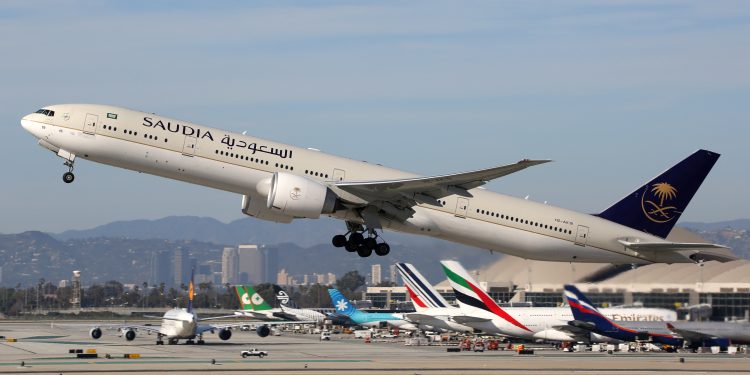The Public Investment Fund (PIF) of Saudi Arabia is reportedly engaged in preliminary discussions to acquire the nation’s premier airline, Saudia. This move is part of a broader initiative to invest heavily in the country’s emerging tourism sector.
Insiders with knowledge of the situation, who preferred to remain anonymous, have indicated that the PIF may integrate Saudia, an airline with an 80-year history, into its expanding collection of aviation holdings as early as the coming year.
Should this acquisition proceed, the PIF would assume control of the airline from the Saudi government. The objective behind this is to enhance Saudia’s operational efficiency and profitability. Post-acquisition, possibilities include either privatizing the carrier or potentially consolidating it with Riyadh Air, a new airline venture that the wealth fund is currently establishing.
The valuation of Saudia by the PIF remains uncertain. The fund has previously acquired government assets without financial exchange in preparation for future privatization efforts. Saudia maintains a sizeable fleet, comprising over 142 aircraft, and services in excess of 90 global destinations.
Nevertheless, it is important to note that these discussions are in their infancy and may be subject to change, delay, or cancellation. Official representatives for both Saudia and the PIF have chosen not to comment on these matters.
Saudi Arabia’s ambition is to transform Riyadh into a dominant business and travel hub, capable of competing with leading Gulf airlines for international transit passengers. Riyadh Air, created by the PIF, aims to establish a formidable network to rival the likes of Emirates and Qatar Airways. Saudia, headquartered in Jeddah, looks to refocus on accommodating the influx of religious pilgrims.
In a significant move last year, the two Saudi airlines jointly placed an order for 78 Boeing 787 Dreamliners, a transaction the White House estimated at nearly $37 billion.
The vision for Saudi Arabia includes attracting 150 million visitors annually by 2030, as part of a broader strategy to diversify its oil-reliant economy and increase foreign currency influx. The PIF is poised to play a central role in this transformation, with plans underway to expand Riyadh’s airport into one of the largest globally. Additionally, the PIF has ventured into establishing an aircraft leasing company, a helicopter service, and has invested in Saudia’s engineering arm.


